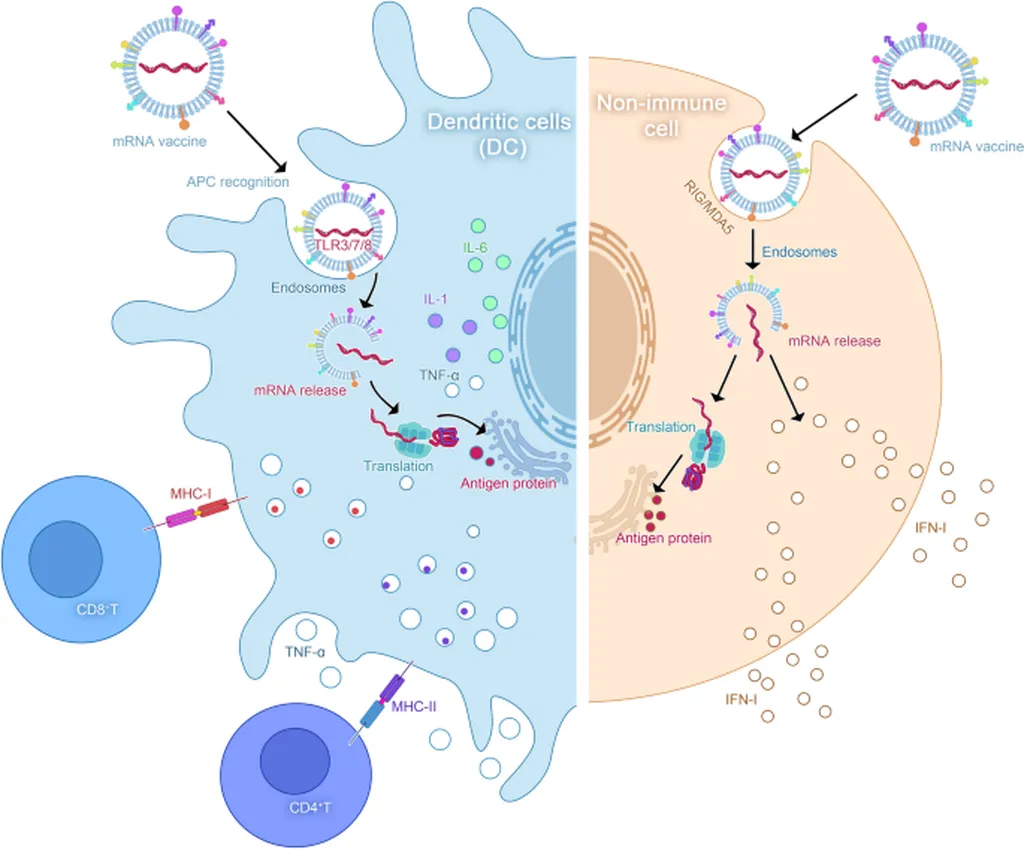In a groundbreaking development that could reshape cancer therapeutics, researchers have unveiled an innovative mRNA-lipid nanoparticle (LNP) vaccine designed to tackle the immunosuppressive tumor microenvironment (TME). This novel approach, detailed in a study published in *Scientific Reports*, targets multiple cellular mediators of immune suppression, offering a promising strategy for enhancing anti-tumor immunity across various cancer types.
The study, led by Tiyun Han of Nanjing Chengshi (TheraRNA) Biomedical Technology Co. Ltd., focused on a cohort of canines with spontaneous neoplasms, including adrenal, hepatic, perianal, vulvar, and pulmonary malignancies. The vaccine demonstrated good tolerability, with only mild adverse events observed in 25% of subjects. Remarkably, 75% of treated animals achieved stable disease, with a median follow-up of 168 days post-treatment initiation.
“This vaccine represents a significant leap forward in our ability to reprogram the tumor microenvironment,” said Han. “By targeting key immunosuppressive factors, we can potentially unlock the body’s own immune system to fight cancer more effectively.”
The implications of this research extend beyond veterinary oncology. The multi-targeted immunomodulatory strategy could pave the way for novel cancer therapies in humans, addressing a formidable challenge in oncology. The study’s findings suggest that the vaccine not only exerts anti-tumor effects but also reverses hematological and biochemical abnormalities associated with malignancies.
For the agriculture sector, this research could have profound commercial impacts. The development of effective cancer therapies for animals can lead to healthier livestock, improved productivity, and reduced economic losses due to disease. Additionally, the successful application of mRNA-LNP technology in veterinary medicine could accelerate its translation to human oncology, fostering a collaborative approach between human and animal health sectors.
As the field of immunooncology continues to evolve, this study highlights the potential of multi-targeted immunomodulatory strategies. The research not only offers hope for better cancer treatments but also underscores the importance of interdisciplinary collaboration in driving innovation.
“This is just the beginning,” Han added. “The insights gained from this study could guide the development of next-generation cancer vaccines, benefiting both animals and humans alike.”
With the median progression-free interval not yet reached in the study, the future of cancer therapeutics looks increasingly promising. The research published in *Scientific Reports* by Han and colleagues marks a significant milestone in the quest for more effective and targeted cancer treatments.

